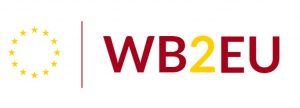Policy Recommendations
- Responding to the demands of the market the relevant institutions throughout the region should develop fast-track programmes advancing the needed skills from youth and enabling further professional development.
- Regional development initiatives must be specifically designed to target youth in need and guarantee that their views and interests are equally represented.
- National institutions should ensure youth participation when designing policies.
Abstract
Today, the Western Balkan region suffers from a situation of fragmentation characterised by high unemployment rates especially among youth, brain drain, high migration rates, low levels of trust in public institutions due to rooted corruption, devastated health systems caused by the impact of COVID-19, weak economies and harmed environments. Among the ongoing agendas that aim to address most of the aforementioned issues is the current European Union’s Economic and Investment Plan for the Western Balkans, which represents a good opportunity for a meaningful inclusion of youth in decision-making processes. This major investment plan aims to support human capital development, sustainable connectivity, competitiveness and inclusive growth, twin energy and digital transition in order to spur the COVID-19 recovery of the region and harmonisation with European Union initiatives. However, so far very little attention has been directed toward the inclusion of youth within these topics and projects. While only one flagship project directly targets youth, the others merely touch upon the need to include the next generation.
This Policy Brief* aims to focus on the mechanisms in place and the space they offer to ensure youth participation in sectoral policy-making, Furthermore, the authors provide recommendations for increasing youth participation and establishing more inclusive and youth-friendly policies.
* This Policy Brief is based on the Connecting-Youth Platform’s previous research on the Economic and Investment Plan from the perspective of youth.
Download the PDF file from here
The Policy Brief is published in the framework of the WB2EU project. The project aims at the establishment of a network of renowned think-tanks, do-tanks, universities, higher education institutes and policy centres from the Western Balkans, neighbouring countries and EU member states that will be most decisive for the enlargement process and Europeanisation of the region in the upcoming years. The WB2EU project is co-funded by the European Commission under its Erasmus+ Jean Monnet programme.


Photo by Nicolas Lobos on Unsplash





